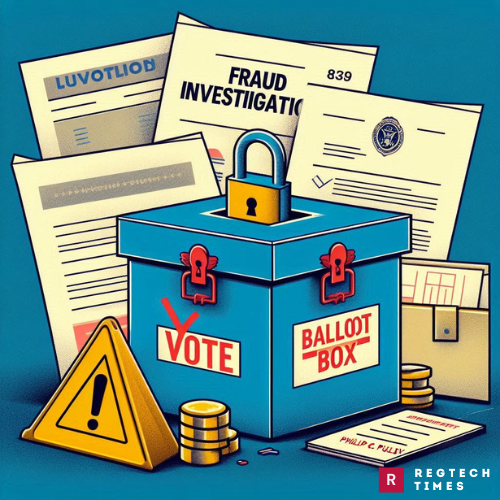Election fraud has become a focal point in discussions surrounding the integrity of democratic processes in the United States. The case of Philip C. Pulley, a 62-year-old man from Huntington Valley, Pennsylvania, highlights the seriousness of such offenses and the ongoing efforts to safeguard the electoral system.
Philip C. Pulley and the Charges Against Him
United States Attorney Jacqueline C. Romero announced that Philip C. Pulley had been charged with multiple election fraud offenses, including falsely registering to vote, double voting, and other related crimes. Pulley’s actions spanned several years and involved multiple jurisdictions, including Montgomery County, Pennsylvania; Broward County, Florida; and Philadelphia County, Pennsylvania.
In 2018, Philip C. Pulley registered to vote in Montgomery County, Pennsylvania. However, he also registered in Broward County, Florida, establishing a dual registration that would later facilitate further fraudulent activities. By 2020, Pulley allegedly took his actions a step further by registering to vote in Philadelphia County, Pennsylvania, using a false home address and a social security number that did not belong to him.
During the 2020 general election, Pulley is accused of requesting a mail-in ballot in Philadelphia while voting in both Broward County and Montgomery County. The charges further allege that in the 2022 general election, Philip C. Pulley voted in both Montgomery and Philadelphia counties, despite knowing that these actions were illegal.
The Impact of Philip C. Pulley’s Alleged Actions
The case of Philip C. Pulley highlights the profound implications of election fraud. Voting is fundamental to democracy, giving citizens a means to participate in government decisions. When individuals like Pulley engage in fraudulent activities such as double voting or falsifying voter registration, they undermine the legitimacy of elections and erode public trust in the democratic process.
The potential consequences of election fraud extend beyond the actions of a single individual. In closely contested races, even a few fraudulent votes can alter the outcome, leading to results that do not accurately reflect the will of the people. This possibility is particularly concerning in today’s polarized political climate, where each vote carries significant weight.
Moreover, election fraud can deter voter participation. When citizens perceive the electoral system as vulnerable to manipulation, they may become disillusioned and less likely to vote. This apathy weakens democratic institutions and diminishes the quality of governance, making the case against Philip C. Pulley all the more significant.
Legal Consequences and the Role of Law Enforcement
The charges against Philip C. Pulley highlight the seriousness with which law enforcement agencies treat election fraud. If found guilty, Pulley could face harsh penalties, including up to five years in prison for each charge, three years of supervised release, and fines ranging from $10,000 to $250,000 per offense. These stringent penalties reflect the federal government’s commitment to deterring election fraud and ensuring that those who attempt to undermine democratic processes are held accountable.
The investigation into Philip C. Pulley’s actions involved both the Federal Bureau of Investigation (FBI) and the Pennsylvania Attorney General’s Office, demonstrating the coordinated efforts between federal and state authorities to combat election fraud. This collaboration is crucial for detecting and prosecuting individuals who exploit vulnerabilities in the electoral system.
The Broader Context of Election Integrity
Although the case of Philip C. Pulley is especially severe, it is not an isolated occurrence. Across the United States, there have been numerous instances of election fraud, ranging from voter impersonation to tampering with ballots. While these cases represent a small fraction of the overall votes cast, they emphasize the need for vigilance and robust safeguards to protect the integrity of elections.
To ensure that election fraud is prevented while maintaining accessible voting for all eligible citizens, policymakers and election officials must strike a delicate balance. This balance is essential for maintaining public confidence in the electoral system and upholding the principles of democracy.


